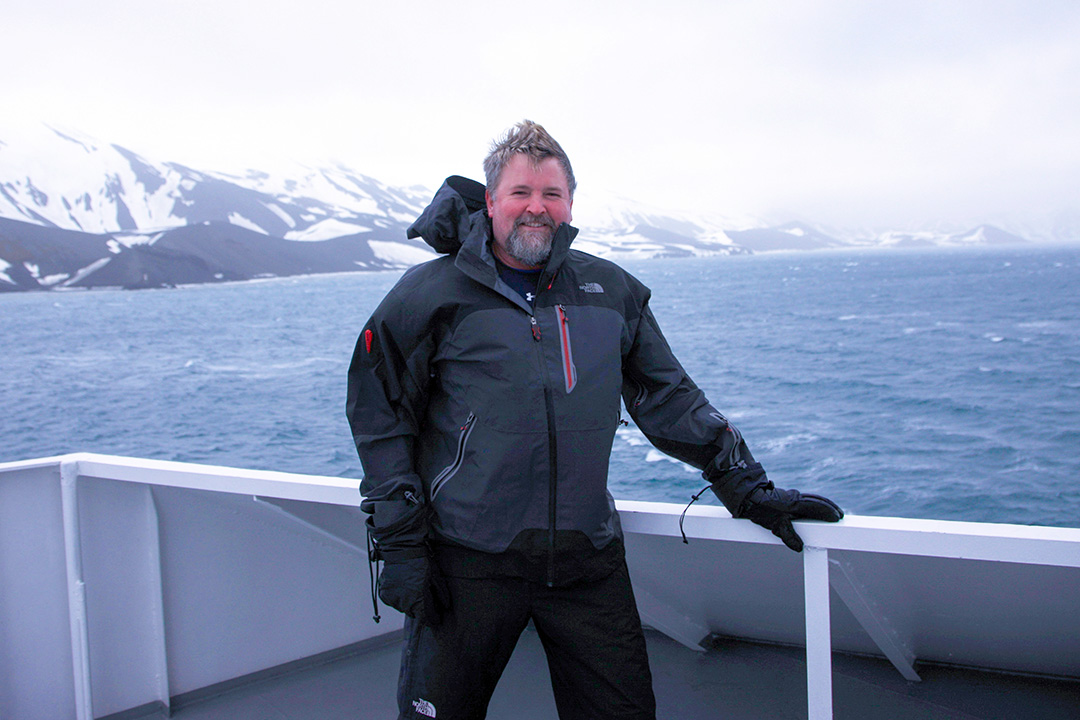
USask climate history course offers important lessons
Dr. Bill Patterson (PhD) has spent his career reconstructing environmental records using the latest scientific techniques. But when he discusses climate history, he also likes to talk about witches.
By Chris PutnamAlthough witches don’t influence the weather, Patterson points out the striking correlation between witchcraft allegations and climate over the last 1,000 years.
“The worse the weather is, the more accusations are made and the more people are executed, tortured or banished,” said Patterson, a professor in the University of Saskatchewan (USask) Department of Geological Sciences and director of the Saskatchewan Isotope Laboratory.
Crop and livestock disease resulting from bad weather may have prompted these accusations—one example of unexpected climate consequences that Patterson uses in his geology course Climate History. He is teaching the long-running course again this term in the College of Arts and Science.
From the invention of agriculture to the Black Death bubonic plague epidemic, Patterson said human history has been shaped by weather, citing the rise of the Roman Empire.
“The Romans had the right kind of weather to produce lots of food. If you can produce a lot of food, you can support a big army. If you have a big army, you can take over and control more territory,” said Patterson. “And it ended when the weather went bad. Precisely, exactly when the weather took a downturn, the empire collapsed and split starting around 410 AD.”
Patterson’s interest in historical records began as a hobby, but has since grown into part of his research.
The isotope biogeochemist and his team have worked on all seven continents collecting and analyzing materials such as water, lake sediment, bat guano and animal remains. From the chemical traces they find, they can reconstruct environmental conditions of the time the samples were deposited.
Another source of information about past climate conditions is historical documents such as letters, literature and public records. Although these records don’t give a complete picture, researchers can use them to help interpret scientific data.
An example from Patterson’s own career is his team’s research into the historical climate of the North Atlantic. In a paper published in 2010, they contributed to solving the mystery of why Viking colonies disappeared from Iceland and Greenland in the early 1400s. Medieval sagas recount famines in the colonies so severe that “men ate foxes and ravens” and “the old and helpless were killed and thrown over cliffs.”
“The problem with written evidence is that people don’t always tell the truth,” said Patterson, noting that a report of a bad growing season might be accurate, or might have come from a distant colonist trying to evade taxes on his harvest.
Patterson’s team analyzed isotopes in Icelandic clamshells to build a temperature record spanning two millennia. They confirmed that summer temperatures in the region dropped sharply soon after the Vikings’ arrival—enough to devastate crop yields.
“So, in a way, we’re verifying written accounts a thousand years after the fact,” said Patterson. “Which is fun when it matches up, and is also fun when it diverges.”
Patterson said all of these historical examples add up to an important lesson for students of his climate history course: “We are still susceptible to what the environment throws at us.”
Famine, mass emigration and warfare have resulted from past climate shifts, and we should be prepared for similar devastating consequences in our current period of climate change, he said.
“When people haven’t prepared, they have suffered or were even wiped out.”
Patterson is critical of those who minimize the danger of climate change, noting that history shows many of its consequences might be impossible to predict.
“One poke to the climate system can lead to crazy downstream effects that no one had ever anticipated,” Patterson said. “And this is what we should expect in today’s world.”

